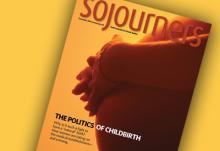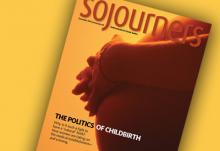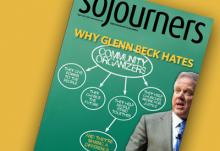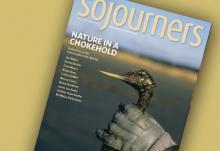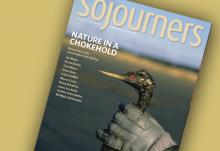Feature
Apocalypses generate mixed reactions in our culture. They sell briskly at the box office. They are cathartic. They are foundational to the gospel and to Christian hope.
But they also feel dangerous and unsettling. They seem to feed a politics of certainty, triumph, fear, and exclusion. Many of us suspect our biblical apocalypses are harmfully radioactive. If we handle them at all, we put on gloves, and find it impossible to turn the pages.
What's really there? What are these ancient apocalypses?
Apocalypse is, first of all, a genre, or way of writing, that aims to convey a way of seeing. The first apocalypses asked their readers to open their eyes and see the world in a new light. They were actively resisting other ways of seeing. They offered images, symbols, and stories to combat the story and spectacle of empire.
In the ancient world empire was a transnational apparatus for the redistribution of wealth from poor to rich, from rural to urban, from subjugated nations to the imperial seat. Conquest was its engine, leaving death, shame, and fear in its wake. Conquered peoples yielded up tribute, land, and labor.
Empires claimed the power to order the world. They ruled by force. They also ruled by the stories they told. They marked their power on people’s bodies. Structures of domination and subjugation were encoded in social interactions, gestures, and scripts. Through stories, myths, and symbols and through the habits and practices they shaped, empires could assert their rule as given, as the necessary and natural order knit into the fabric of time, space, and human life.
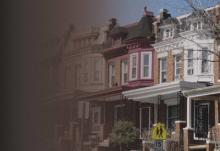
When I moved to the riot-dismembered neighborhood of Columbia Heights, Washington, D.C., in 1986, I had no idea I would still be here more than 20 years later. I anticipated a rather bohemian life of Christian itinerancy—owning little property and moving where the spirit led. Instead, I was provided with a 100-year-old house (with much of the original wiring) and the gift of stability.
It is from this house that, on some mornings, I glimpse little neighborhood boys on their way to school. Donte Manning was undoubtedly one of those boys—laughing with the school crossing guard, running with his friends, scraping handfuls of snow off parked cars for snowballs. He was just a little boy.
In the mysterious mechanics of God's universe, Donte's murder on Holy Thursday in 2005 set off a spiritual alarm deep inside me. I followed the scraps of his story in The Washington Post. I read the police reports and spoke with neighbors. Over time, his story became linked with my own—and with our own story as Americans.
Donte Manning was in the third grade when he was shot in the face around the corner from my house. Pop, pop, pop. It was Holy Thursday—a little before 10 p.m. The next morning I was leaving Washington, D.C., for a trip to El Salvador. Pop, pop, pop. Six shots on a street filled with kids enjoying a warm night before the Easter holiday.
My family had been farmers in the rough terrain of southern Mexico for centuries. My mother, the oldest of 12, began working in her teens to provide for her siblings. My father, one of five children, lost his father at age 3. Neither of my parents completed primary school. My father was 20 when he married my mom, who was 18. They had my sister a year later. Two years after that, I was born.
Jan. 10, 1990. It's unusually cold tonight in the small, arid town of San Miguel, Oaxaca. There’s no soap to wash me, so to keep the ants away, I'm laid to rest on my mother's stomach as we sleep together for the first time. Only my grandmother is present to aid in the delivery.
Spring 1992. My mother and father leave, planning to work for one year in New York and then return to Mexico.
Spring 1993. There's been a change of plans; after a year of separation, our father has returned to take my sister and me across the border and to our new home in New York. The three of us, along with an aunt, cross somewhere in Arizona. I'm glad our family is together again. Amazingly, my mother will soon have another child, and we will be five.
Fall 1994. With much anticipation, I've begun school. Although my thoughts, wishes, and entire vocabulary are in Spanish, I'm not too worried about my ignorance of the English language.

Writers who want to let both their faith and their creativity run free are finding a home in the Christian literary underground
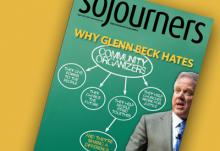
Trinity University found the future of education -- hiding in its own neighborhood.
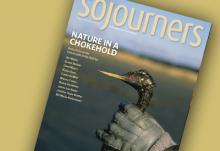
An economist explains why reducing the deficit will require big cuts in military spending.
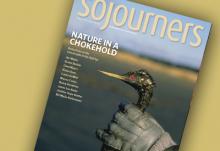
The Israeli group Zochrot seeks to introduce fellow Israelis to the people who lived on the land before them -- and to engage Jews and Palestinians in an open recounting of their painful common history.

Palestinian Christians call for a nonviolent movement to end the occupation.
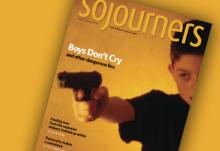
An intergenerational conversation on why we need Christian community, and where to find it.

Churches in Dallas engage in the hard work of transformation in the wake of last year's Justice Revival.
As the nations of the world review the nuclear Non-Proliferation Treaty (NPT) in May at the United Nations, they gather at a time of unprecedented hope for genuine progress toward disarmament. The new receptivity to nuclear abolition is reflected in the “New START” treaty between the United States and Russia, and was sparked by private initiatives led by former U.S. Secretary of State George Shultz and other senior security experts and officials in many countries.
